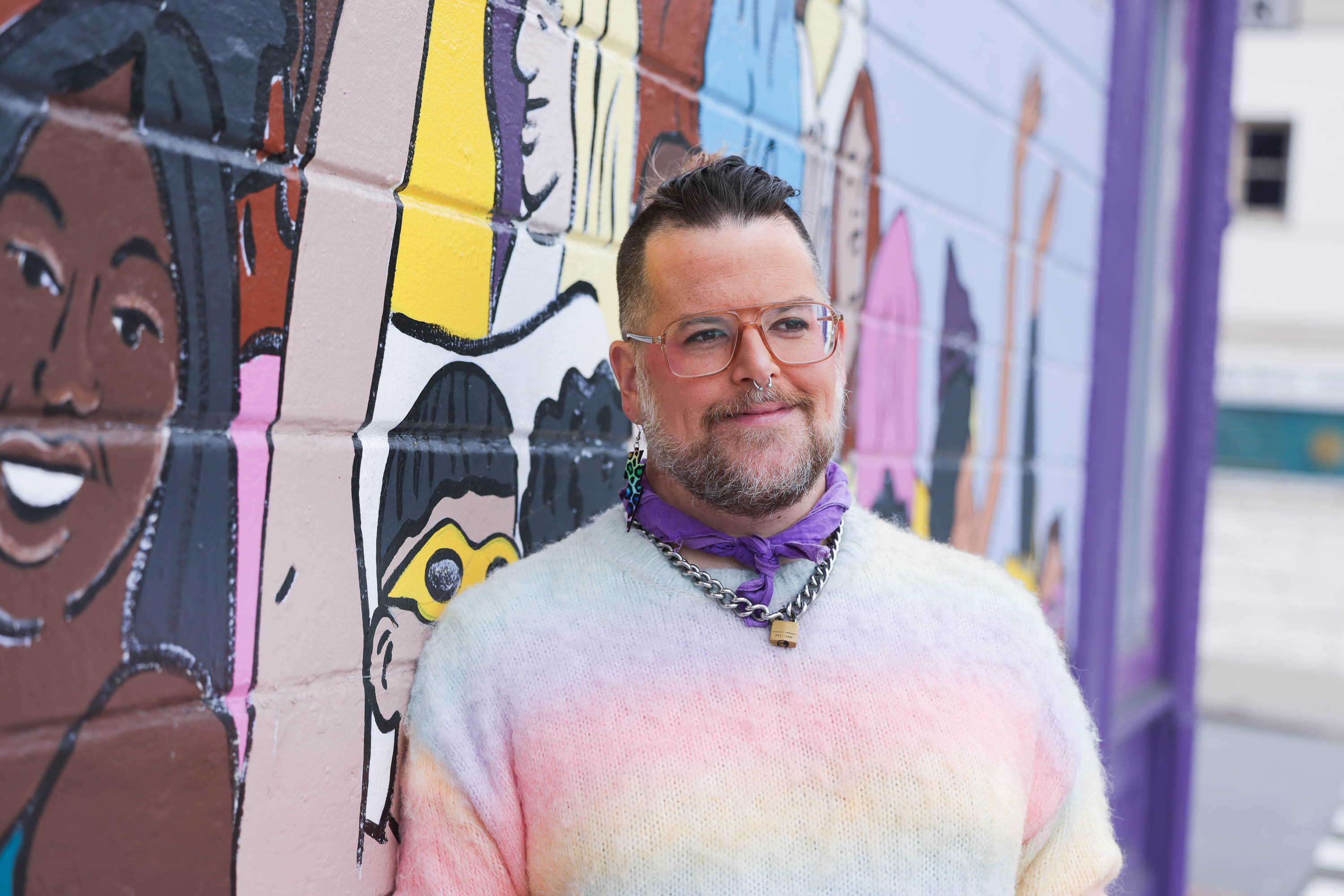Just before Christmas, a gay male friend and I met up in a packed Fillmore District restaurant for cocktails and some snacks at the bar. We hadn’t seen each other in a while, so we were giggly and in high spirits before we even sat down.
“Hello, gentlem–, err, hello, friends!” the bartender said, handing us the menus and immediately interrupting himself. “Sorry, I want to be respectful,” he added, falling into a cheerfully frantic mumbling that stopped short of one of those needle-across-the-record apologies that kill the vibe entirely.
This endearingly awkward self-correcting was nothing new to me. I’m trans and nonbinary, having made it “Instagram official” during the pandemic after years of private anguish, like a lot of people did. And I could read this bartender’s mind perfectly. Running on what you might call “politeness autopilot,” he took a second look at me and realized, “Hmm, this person may not be a guy.” (It probably didn’t hurt that I was wearing a fluffy pastel sweater and my makeup was as good as I am capable of doing it.) He didn’t have an up-to-date mental glossary of the entire trans spectrum at hand, but his heart picked up where his brain left off.
Clearly, this bartender thought he had committed a massive faux pas. Instead, he made my day.
I’ve come to think of these episodes as “micro-kindnesses.” Micro-kindnesses are the opposite of microaggressions, like when people ask me what my “real name” is after I introduce myself as Astrid. (Rare, but it happens.) They’re when someone takes that extra step to be thoughtful. It’s no exaggeration to say that gestures like a busy bartender finding a gender-nonspecific greeting mean everything to me, because they tell me the world is getting better.
Sunday is the International Transgender Day of Visibility, and although I like to think I live that principle—visibility—day in, day out, the reality is that no matter how proud or confident I might be, every day is filled with calculations and negotiations, when to speak up and when to let it go.
It’s not always easy. Take pronouns, for instance. All day, every day, I get “he” and “him” and “hey, man” and “thank you, sir.” Ninety-nine times out of 100, I say nothing. However, owing to the disproportionately large number of gay servers, trans baristas and nonbinary cashiers in the service industries, it’s often other LGBTQ+ people misgendering me and that can be a little maddening. Still, I focus my energy on the opposite. When people take the time to use “they/them,” my heart swells to near-infinite proportions.
Why would something so small matter so much? Well, queer and trans people are grimly used to the awkward pauses, the arched eyebrows and the ambiguous inflections. From the tentative beginning of my gender adventure a little under a decade ago, I tried to accept that society is going to see me how it sees me, as a 5’11” beardo with a baritone voice and big hands and feet.
So I made the decision to assume positive intent in all interactions and always reciprocate with anyone who obviously means well. This isn’t because I possess some bottomless reservoir of serenity. It’s because doing it any other way risks giving in to bitterness—and I refuse to move through life grievance-first, with dimmed exuberance and a curdled spirit. I also don’t mind “dude,” because this is California, and “dude” is gender-neutral!
There’s another, more pragmatic element to letting things go. I haven’t landed on a gentle way of correcting people. I don’t like when otherwise pleasant chats grind to an abrupt halt as someone’s eyes widen and they raise four fingers to their open mouth, mortified over using the wrong pronoun. This is never what I want. Trans people are magic and I’d rather prove that by touching the occasional heart, not enforcing punctilious adherence to orthodoxy. My day job involves editing other people’s words, so I don’t have much of an appetite left to do that in conversation, too.
Certainly, I’m fortunate to live in San Francisco, where overt hostility toward trans people is less common than elsewhere. For one thing, I don’t think I can legally drive in Florida since my license has an X gender marker. And I cannot stop thinking about Nex Benedict, the nonbinary Oklahoma teenager who took their life after an assault in a girls bathroom that they were legally forced to use at school. At the same time, I’m heading to Austin to see the solar eclipse because I’m not afraid of Texas—at least, not in the way I’m afraid of a public pool.
Fear or no fear, when I resist correcting every misgendering stranger, am I being meek and overly accommodating, settling for crumbs? There are times when I fret that I might be, until I remember that finding occasional euphoria in the everyday is exactly what I wanted when I came out for the second time, almost 20 years after telling my parents I was gay. And having forced myself through the fear, the false starts, the imposter syndrome and all those other phases, I have nothing left to prove. This is the way!
After my friend and I finished dinner, we capped off our night with some karaoke at a basement lounge in Japantown. I sang my usual Queen and Bowie, the glam-rock canon that was my gateway drug to gender-nonconformity. As it happens, one of the karaoke DJs there is a trans woman. She kept calling me to the stage as “Astro.” I was having too much fun, so I let that go, too.
Astrid Kane is a senior editor covering arts, culture and the city’s glorious weirdness at The San Francisco Standard. They came out as trans in 2020 and have never been happier.
